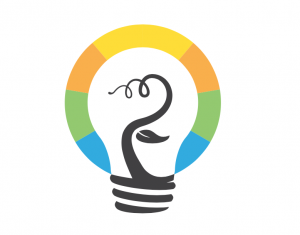Leadership Topics
Building Leadership Emotional Intelligence (EQ) dddd
The following skills can help you increase your EQ (Emotional Intelligence) and connect with others.
 Key skill 1: Self management
Key skill 1: Self management
What is the relationship between self-regulation and emotional intelligence?
Physical well-being. Unable to control emotions, a person is likely to be unable control stress. This can lead to serious health problems. Uncontrolled stress can lead to increased blood pressure, suppressed immune system, strokes, heart attacks, infertility, and accelerated aging. The first step to improving your emotional intelligence is understanding how stress can be managed.
Mindfulness is a practice that allows you to pay attention to what’s happening now, without judgement. Many religions have a form or prayer that is similar to mindfulness cultivation. Mindfulness helps you to see the bigger picture by focusing on the present moment, paying attention to your emotions and physical sensations. Mindfulness helps you become more present and more centered.
Key skill 2: Self-awareness
Are people who are emotionally intelligent self-aware?
Mental health. Uncontrollable emotions and stress can also negatively affect your mental health. This can lead to anxiety. If you don’t have the ability to accept, manage and understand your emotions, it will be difficult for you to build strong relationships. This can make you feel isolated and lonely, which can lead to further mental health problems.
To manage overwhelm, it is important to learn how to manage stress.
 Key skill 3: Social Awareness
Key skill 3: Social Awareness
Mindfulness can increase social and emotional awareness.
Social intelligence. Social intelligence helps you to be more in touch with your emotions and become more in tune. Social intelligence can help you identify the person who is interested in your life, reduce stress, balance nervous system, and feel loved.
Social awareness allows you to identify and interpret nonverbal and verbal signals produced by your interactions with others. This allows you to see how other people feel and how their emotions change over time. It also helps you understand what is important to them.
Social awareness is built on mindfulness. You cannot sense nonverbal cues if you spend too much time thinking, scrolling on your phone, or lost in your thoughts. To be socially aware, you must be present in the moment. Multitasking can cause you to miss subtle emotional shifts in others that can help you understand them.
Key skill 4: Relationship Management
As a group you can do more with your emotional intelligence.
Relationships with others. Understanding and controlling your emotions can help you communicate and understand others’ feelings. This will help you communicate more effectively at work and create stronger relationships in your personal lives.
Effectively use non-verbal communication. It is impossible to avoid communicating nonverbal information about your thoughts and feelings to others. Your face is composed of many muscles, including those around your eyes, nose and mouth. You can’t ignore your brain’s emotional messages, but others will. Your relationships will improve if you take note of the nonverbal messages.
You can learn a lot from watching similar nonverbal cues in groups. This will help you to understand power dynamics and share your emotional experiences. You are sociable and empathic.
You must be emotionally sensitive and able to understand and appreciate the experiences of others in order to be a good friend. You must develop emotional awareness in order to have successful, fulfilling relationships.
 Are you Emotionally Intelligent?
Are you Emotionally Intelligent?
Emotional intelligence (EQ) refers to our ability to feel, perceive, and control the emotions we experience. Emotional intelligence can be developed and improved. Some argue it is inherent.
While expression and control are important, so is the ability to understand, interpret, and respond to others’ emotions. Imagine not being able to understand your friend’s pain or your coworker’s anger. Experts believe that emotional intelligence is more important than IQ when it comes to your ability to succeed in life. This ability is known as emotional intelligence by psychologists.
There are many ways to measure emotional intelligence. This type of test can be divided into two types: ability and self-report.
Emotionally intelligent people understand that emotions can be powerful but they are also temporary. It is best to avoid reacting immediately when you feel strongly charged, such as anger at a coworker. The argument can be cooled down by everyone involved.
Emotionally intelligent people are not only able to understand how others feel but can also comprehend their own emotions. Self-aware individuals can consider the many factors that influence their emotions.
Emotional intelligence is about understanding and empathizing. Reflecting on how you responded to a situation can help you think about what you would do.
People who have high emotional intelligence can understand others’ perspectives, emotions, and experiences and then use that information to explain why they act the way they do.
Understanding Yourself Through the Four Lenses Assessment
Shipley Communication believes that every person is unique, and each person has their own motivations and strengths. Four Lenses is a personality assessment that helps organizations identify a person’s potential and innate talents. Four Lenses was developed from research using Myers Briggs Personality Type Indicator and modifications by David Keirsey’s book, Please understand Me. To provide a more enjoyable experience and better retention, the instrument has been simplified.

Why Four Lenses?
The Four Lenses is a proven personality temperament model that acts as a universal companion to any training or initiative. This foundational training helps individuals and organizations establish a common language and value system for diverse perspectives and unique talent in the workplace, in the classroom, or simply in life.
The four temperaments trace back to the Greek physician Hippocrates (460–370 BC) who discovered that each person has a unique personality spectrum or lens that reveals how individuals naturally see the world. Because our paradigms are so influential, we often struggle communicating with those who have a different perspective. By failing to truly understand those around us, surely, we are missing one of the greatest opportunities life has to offer.
The Four Lenses training will forever change the way you see the world. Participants discover unique aspects about themselves and everyone around them. After completing a personality temperament assessment, participants begin learning through online training modules, books, and participating in the online community. Participants learn to interact with others in a powerful new way.
The Four Lenses training helps participants learn how to:
• Motivate reluctant people
• Communicate with power
• Strengthen leadership abilities
• Reduce stress and conflict
• Parent complicated children
• Teach difficult learners
• Create sensational relationships
